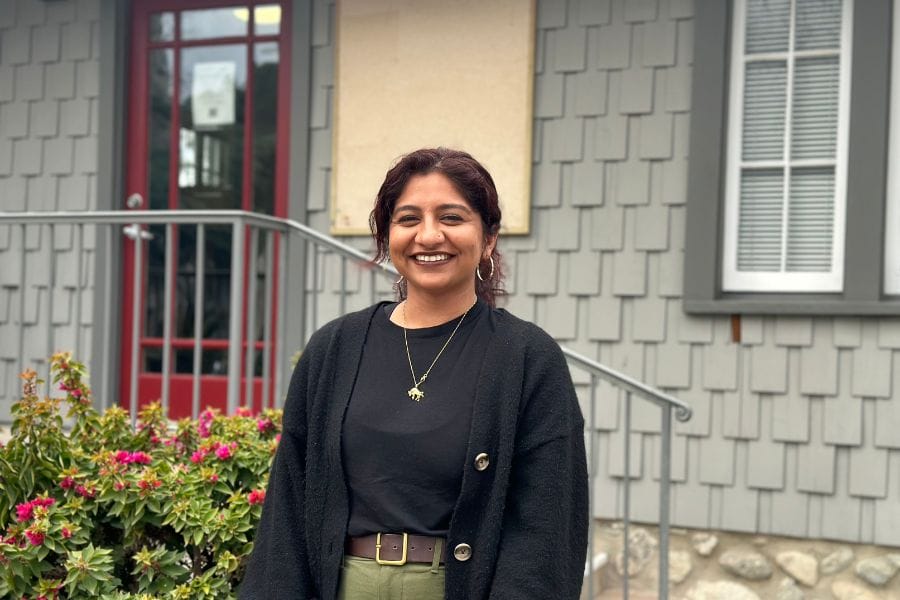Moving Beyond Statements of Solidarity with the Anti-Discrimination Committee

In the summer of 2020, following the murder of George Floyd and widespread protests against police brutality, Anisha Ahuja was appointed chair of the newly founded Anti-Discrimination Committee (ADC) at the Center for Writing & Rhetoric. “After the uprisings, there were a lot of statements coming out of every organization. We created a statement of solidarity with Black students. But we really wanted to do more than just create a statement. We wanted to do something that would have a lasting impact.”
Viewing tutoring as more than just what goes on in-session, Ahuja looked to the total ecology of the learning environment, considering the process holistically: “In academic environments like the classroom, Black students, students of color, and women students may not feel as motivated to speak up and they may not feel as confident in their writing. … Every community has different circumstances that they’re writing under and produces different kinds of writing that requires different kinds of support.”
Following the traumatic events of 2020, Ahuja partnered the ADC with Sister Citizen to put on the Black Solace Writing Retreat. Using the resources of the Writing Center, the virtual writing retreat centered the needs of Black students, offering breakout rooms with music, art, meditation, community lunch, and collective reflection.
“There was so much isolation, especially in the pandemic, so it was important to be able to share what their experiences were. I would also be there if any students needed writing consultant help but eventually, they didn’t need me.”
The Writing Center also offers a Students of Color writing retreat, an LGBTQ+ Student writing retreat, and the Intercollegiate Feminist Center’s zine-making event. “Academic writing can be challenged by the structures of genre. And so, looking at zines and art and collaging as alternative forms of political writing is important to us.” Ahuja and the ADC added workshops to these events on diversifying research methods, building anti-racist tool kits, code meshing workshops, and workshops that challenge the supremacy of academic writing structures.
In addition, the Center for Writing & Rhetoric has added outdoor writing retreats at the California Botanical Gardens centering on poetry, spearheaded by Jessica Delgado: “My experience in this committee allowed for innovative ways to imagine life experiences incorporated into scholarly work and creating spaces for students to feel honest about their work and comfortable in sharing resources, asking questions, and creating/achieving realistic goals in community-based groups. …The California Botanical Gardens provides students with literal new spaces to study, interact, and build relationships that they may otherwise have not had access to or known about.”
Looking to the ways a campus writing center can combat institutional oppression and become a more welcoming space for Black, Indigenous and people of color, Ahuja developed and implemented a new anti-racist pedagogy, revamping the writing center’s hiring process to include a commitment to building a more diverse staff and developing leadership and mentorship opportunities for BIPOC students. Virgil Clark, who joined the writing center and ADC in 2021 and helped to develop workshops on diversifying resources, said “We create inclusive writing spaces that celebrate the individuality of each scholar who comes to us. Here we celebrate diversity not simply for diversity’s sake, but because we believe that creating diverse writing spaces expands our understanding of reality and makes us more compassionate, empathetic scholars.”
Ahuja and the ADC are building collaborative rather than hierarchical tutor-student relationships, combatting discrimination against international students by recasting multilingualism as a strength rather than a deficit and supporting BIPOC students in ways that transcend the graduate experience by building confidence and writing skills. “I try to make sure everything is as tangible as possible–not just talking about these things but actually showing people how to do it. Allowing students to build these anti-racist toolkits and allowing students to be empowered to write in their own voice and draw from scholars that are maybe not shown in the classroom–this is what our workshops are all about.”
For more information on Anti-Discrimination Committee events, click here.